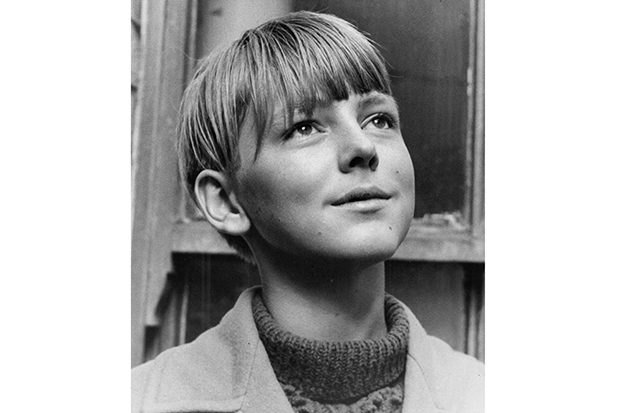There was a touch of Raymond Radiguet, the young literary sensation of 1920s Paris, about Tara Browne. In life poetically beautiful, poetry-imbued, tender and trusting, deliciously precocious and eerily presumptive, androgenous in looks but not desires, Tara died —‘without knowing it’, as Cocteau said of Radiguet — tragically, but given his penchant for very fast cars, unsurprisingly young. And, like Radiguet, having touched the lives of those who knew him with a kind of iridescence that remained with them more than half a century later. This lengthy biography, which, given its subject’s foreshortened life is necessarily somewhat repetitive, has gathered their still-vivid recollections, and if it reads more as a protracted tabloid double-spread, that’s the fault, and expectation, of our times rather than the author’s, or Tara’s.
His childhood milieu included the Irish writers and English aristocrats, mondain Parisians and questionable New Yorkers who peopled his divorced parents’ circle. His philandering father, Lord Oranmore and Browne, newly married to the film-star Sally Grey, had given up the fortune-depleting task of farming a vast estate in Galway for the safety of Eaton Square. Tara’s mother Oonagh, most elegant of three Guinness sisters, had recently become the wife of a gay, soi-disant Cuban depleter-of-fortunes named Miguel Ferreras. Oonagh adored children; more looked unlikely from this union, and as her youngest, merely five at the time, Tara was destined to become the apple of her strange grey eyes, her companion, her confidante.
In many ways, Oonagh is the central character in this story. Almost all members of the Guinness brewing dynasty, whether born a Guinness or married to one, have been extraordinarily self-obsessed, but it seems not to have been true of Oonagh. Wilful, sometimes steely, she nevertheless had a self-effacing, even shy, personality, preferring to let others gambol in the limelight, allowing her fortune to make those around her happier. She inevitably spoiled Tara, but it was a form of spoiling intended to bring out the best in him. Oonagh also handed Tara, on a silver-gilt plate, her innate generosity, loyalty, and elegance of appearance.
I witnessed, once, the latter in its most dazzling form. I was dancing at Ghislaine’s, the known world’s first discotheque, squeezed into a cellar behind the fish-market in St Tropez. Actually, to drop a name, I was dancing with Bardot; but somehow there came the message that Oonagh was on her way. I went and sat waiting in Senequier, watching as, far across the bay, a pale dot became a Riva; closer, the paleness shimmered into Oonagh and Tara, both in narrow white, both white-gold-headed, standing, laughing, holding glasses; a spot-lighting moon dappled the water around them. With the engine still chugging, Tara leapt, turned, and whirled his mother lightly onto the quay. It was like some balletic pas-de-deux, two ethereal water sprites touching down on mortal stone. Then they ran, human now, towards the thump of ‘Hit the Road, Jack’. Tara was, I suppose, about 14 at the time.
There was, of course, no hint of conventional education. Tara baulked at Eton, lasted a few weeks somewhere less rigid. Mixing the Martinis for Oonagh’s friends filled up the remaining 1950s, and it was hardly his fault that LSD took over the ensuing decade and the set he was party to, particularly the new wave of young music makers, or that he was privy to the LSD that allowed it be so seemingly carefree. While he was — fatally — a dab hand at souping-up sports cars, at one point owning a garage in Bayswater to do so, his slight, velvet-clad figure was the leading light in London or Luggala, his mother’s Gothick getaway deep in the Wicklow mountains. He and Ireland seemed exotic in those more insular times. And girls fell headlong, several still remembering Tara as their first great love. That he should instead fall for, and marry, Nikki, a slip of a local girl with much the same silhouette as his own, was a blow to many, his parents included; and if Oonagh’s insistence on rearing their two children as her own seemed harsh at the time, in hindsight it gave them, after Tara’s death and Nikki’s problematical life, a stability they might not have otherwise known.
The devastating — particularly to Oonagh — crash that killed him has become near folkloric, not least because of the Beatles song that is the title of this book. But for the many people who read the news that day, Tara is alive and golden, beautiful and poetic, somewhere deep in their hearts, today.






Comments